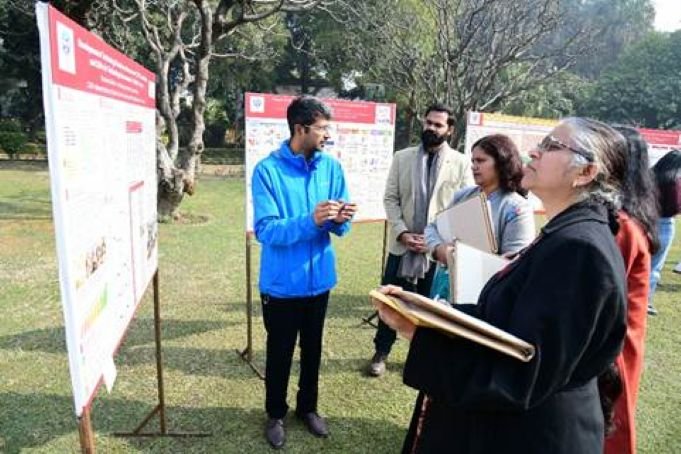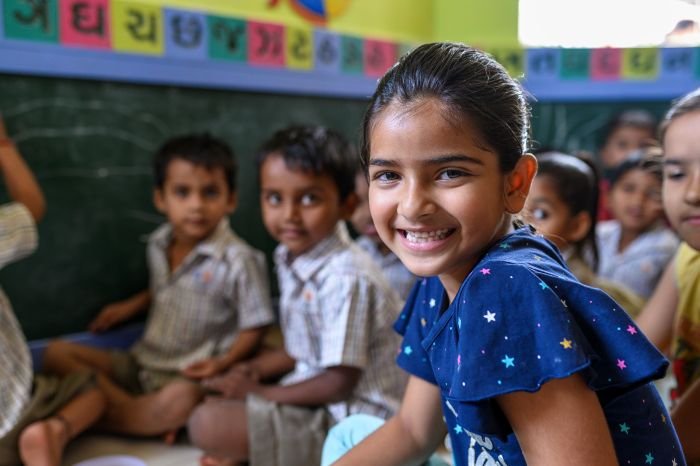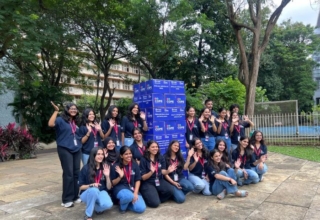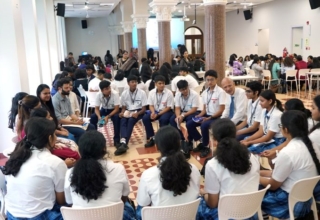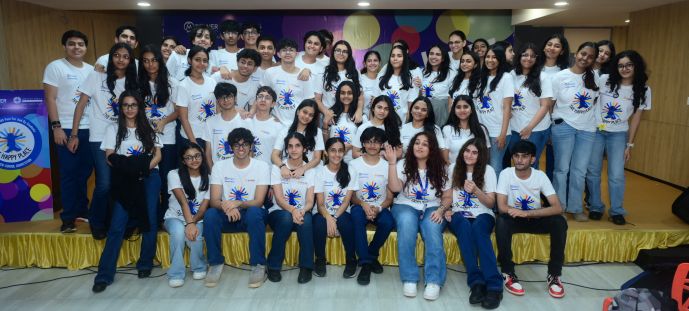
To encourage open dialogue and build emotional literacy among students, Aditya Birla World Academy (ABWA), in collaboration with Mpower—an initiative of the Aditya Birla Education Trust—hosted “The Happy Place: Inside Out 2.0”, an inter-school festival designed to normalize conversations around mental health and self-expression. In an age dominated by social media validation, online gaming pressures, and digital fatigue, young people are facing unprecedented mental health challenges.
According to the National Mental Health Survey of India, nearly 1 in 7 adolescents aged 13–17 years’ experience mental health issues, yet fewer than 10% receive adequate support. Experts warn that the combination of online comparison, academic stress, and emotional isolation has made it critical to begin mental health awareness at the school level—where resilience, empathy, and help-seeking behaviours can be cultivated early.
Held ahead of World Mental Health Day, the festival brought together 212 students from 16 schools across Mumbai and neighbouring regions. Through creative formats including drama, dance, poetry, short film, art, singing, and extempore speech, participants explored this year’s theme, “Inside Out”—an invitation to acknowledge one’s emotions, express them authentically, and find confidence in individuality.
The interschool festival, conceptualized and led by ABWA students, saw remarkable interpretations of the theme. Performances such as “Unmute: The Emotional Reboot” and “Messy Minds, Textured Truths” encouraged participants to translate emotional experiences
into creative expression—turning introspection into art. Judges praised the originality, empathy, and insight reflected across entries.
Among the schools that participated, Bombay International School, JBCN International School, Oshiwara, and RIMS International School, Vashi, engaged enthusiastically throughout the event. Across all activities, students explored their emotions deeply and creatively, showing that conversations about feelings, vulnerability, and resilience can be both meaningful and enjoyable.
The event also aimed to break the stigma surrounding mental health discussions within school environments. By framing emotional well-being as a shared journey rather than a taboo topic, The Happy Place exemplified how schools can act as catalysts for cultural change—helping students develop both self-awareness and empathy.
“The Happy Place is an extension of what we nurture every day at Aditya Birla World Academy — an environment where emotional well-being is valued as much as academic excellence, said Ms. Shalini John, Principal, Aditya Birla World Academy. Through initiatives like The Happy Place, students engage creatively — through dance, drama, poetry, and other expressive forms — to explore their emotions and connect meaningfully with one another. This integration has fostered a culture where children feel safe to express themselves, support their peers, and approach challenges with empathy and resilience. The theme Inside Out 2.0 – An Upgrade on Emotional Awareness encouraged students to look within with honesty and authenticity. It helped us nurture not just confident and capable individuals, but a compassionate community where mental well-being is embraced as a shared priority. The Happy Place was created to give our students exactly that space — to celebrate expression, empathy, and emotional strength.”
“Children today are growing up in a world where digital comparison and constant connectivity often shape their sense of self,” said Ms Parveen Shaikh, President, Mpower “Our Minds Matter curriculum has shown that when mental health education begins early, it changes everything — over 80% of students report better stress management, greater confidence, and stronger academic engagement. Initiatives like The Happy Place build on that foundation by taking emotional learning beyond the classroom. They encourage students to speak openly, express creatively, and understand that mental health is not a taboo but a shared responsibility. The earlier we start these conversations, the more resilient and empathetic our young people will become.”


